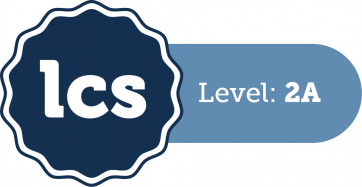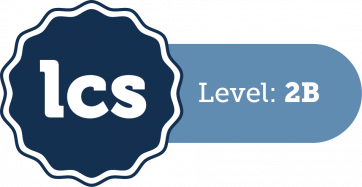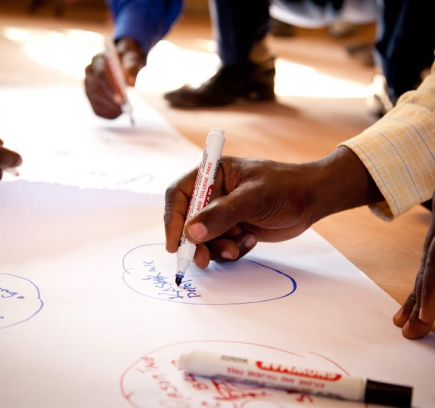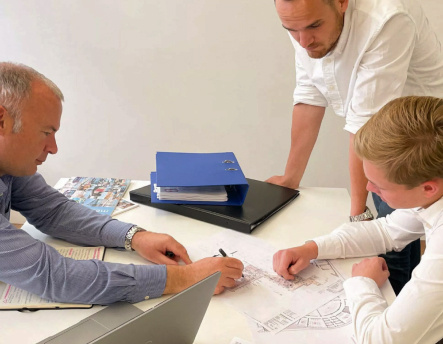Level 2 – Technical


Summary
Level 2 focuses on the advanced Lean knowledge and leadership competencies required for Lean management. Practitioners at Level 2 should be able to design and implement programmes and play a leading role in managing departmental or cross-functional teams.
A Level 2 practitioner should have:
- In-depth knowledge and understanding of the Lean techniques and associated approaches required to develop a Lean implementation programme to achieve business improvement objectives.
- Insight into the business implications of Lean thinking to the wider enterprise and supply chain.
- The ability to lead Lean programmes and projects.
- The ability to design and communicate strategically integrated Lean programmes and projects.
Level 2a v Level 2b
There are two levels within LCS Technical:

Level 2a: Implementation & Design
Level 2 knowledge outcomes include:
- Strategy formation and policy deployment techniques
- Design and deployment of effective and relevant performance measures
- Leadership skills for effective lean team management
- Supply chain management
- Advanced lean thinking knowledge and techniques, complementary approaches
- Sustainable change and continuous improvement
- Project management, implementation and control

Level 2b: Implementation & Leadership
Compared to a Level 2a practitioner, a Level 2b practitioner will have:
- Deeper knowledge of the Level 2 subjects
- Higher levels of responsibility in implementation projects
- Greater experience through holding a variety of senior CI roles in organisations
- More involvement in implementation projects or programmes with a significant scope, for example with inter-organisational dimensions, high strategic or transformational impact, or encompassing the extended enterprise or supply chain
- A maturer and deeper understanding of CI thinking and associated schools of thought.
Leadership Competencies
Level 2 is primarily focused on being an effective Lean leader and the overarching competencies are as follows:
- The ability to think in terms of processes, value streams and systems; knowing how to lead systems.
- The ability to problem solve, understand variability and waste.
- Understanding how we learn, develop and improve; leading learning & improvement.
- Understanding the behaviour of people.
- Giving vision, focus and direction to the organisation.
(Adapted from Peter Scholtes’ list in The Leaders Handbook, 1998)

Prerequisites for Level 2
The following can be used as a guide when selecting participants for courses or programmes aligned to Levels 2a and 2b.

Level 2a
Qualifications/knowledge: LCS Level 1 (a/b/c) or equivalent
Typical experience:
- Approximately three years process improvement experience
- Gained either through in house improvement or consultancy activity
- Undertaken roles with management/supervisory aspects
- Involvement as a team member in strategically aligned projects

Level 2b
Qualifications/knowledge: LCS Level 1 (a/b/c), Level 2a or equivalent
Typical experience:
- Approximately five years practical improvement experience at a leadership level, involved in several strategically aligned projects.
- Gained either through in house improvement or consultancy activity
- Has undertaken CI roles in more than one organisation, division, or department.
- Improvement activity encompassing cross-functional teams, supply chains or value streams.
Level focus
On the implementation and improvement tools used to improve and sustain processes.
Level knowledge outcomes
There are no differences in subject matter between courses or programmes aligned to L2a and L2b.
The Level 2 practitioner shall know and understand:
- AB1 – Strategy formation and policy deployment techniques
- AB2 – Design and deployment of effective and relevant performance measures
- AB3 – Leadership skills for effective Lean team management
- AB4 – Supply chain management (where sectorally relevant)
- AB5 – Advanced Lean thinking knowledge and techniques, complementary approaches
- AB6 – Sustainable change and continuous improvement
- AB7 – Project management, implementation and control

Level practice outcomes

Level 2a
Deliver a practical implementation project that provides evidence that they can:
- Deploy resources and implement projects.
- Engage and communicate with improvement team members.
- Facilitate and sustain workplace change.
- Perform a leadership/facilitation role.
- Plan and design strategically aligned improvement projects, identifying the appropriate Lean approach required.

Level 2b
Deliver a practical implementation project that provides evidence that they can:
- Deploy resources and implement projects.
- Lead and sustain workplace change
- Perform a leadership role, with high levels of responsibility.
- Plan and design a strategically aligned, business-critical improvement project, identifying the appropriate approaches required.
- Mentor, guide and support team members.
- Engage and communicate at all levels.
Indicative Topics
A training programme that aims to cover the knowledge requirements for LCS Level 2 is likely to reference the topics listed below. The list is indicative; some topics may not be relevant, some will require passing reference only and there may be other relevant topics that are not included in the list.
Those selected will depend on several factors, such as the nature of the organisation’s processes, whether it is manufacturing physical goods or delivering intangible services – internally or externally, whether it is private or public sector, etc.
- Advanced CI techniques: eg Factory Physics, lean design, new product/service introduction methods, TRIZ, Appreciative Inquiry
- Associated thinking: eg Theory of Constraints, Six Sigma, Systems Thinking, JIT, TQM, TPM, Agile etc
- Change management; sustaining change
- Coaching, guiding & mentoring
- Communication & facilitation
- Critical thinking, critical analysis
- Lean innovation & design
- Leader standard work, lean management
- Lean implementation frameworks and models
- Performance management & measures
- Strategy development, Policy Deployment/Hoshin Kanri, ‘catch ball’, visual management, QFD, setting direction, visioning, etc
- Project/programme management, implementation and control.
- Sustainability and cultural change
- Team leading, training, developing others

Delivery
A course or programme designed to deliver Level 2 outcomes can be organised in several ways and there is no prescribed format. It will typically use a combination of:
- Face to face, taught in groups – in modules or blocks of days.
- Digital delivery and eLearning.
- Blended learning
- Workplace based guidance and support – going to the ‘Gemba’.
- One to one coaching
The total learning time guidance for a course aligned to Level 2 is 40 hours. This can include face to face teaching, elearning, assessment, pre/post course reading/research, practical project development, offline group work, on the job training and one-to-one support activities.
Learning hours shown are meant to be indicative and a guide, rather than prescriptive; they are not a target and ideally a consequence of delivering effective training that addresses stated learning outcomes.

Level Assessment
The assessment shall demonstrate that the outcomes have been achieved.
Knowledge
A knowledge assessment shall evidence the practitioner can understand Level 2 knowledge, for example, through a multiple choice test, problem or case-based exams, oral exam or essay exam.
Tests can be delivered physically or online.

Practical Application
Practical application shall be evidenced by an implementation report of an improvement project with strategic or transformational dimensions. Consideration can also be given for interviews and presentations by candidates, especially for L2b.
The evidence can be in a variety of formats, such as an A3 summary with supporting evidence or an implementation report which typically would contain the following information:
- Executive summary
- Aims & background
- Description, method
- Results & analysis
- Conclusions, reflections & sustainability
Talk to our qualified experts today about starting your LCS journey



